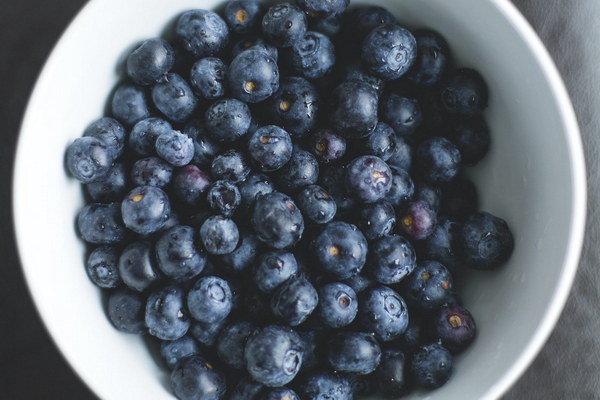Nurturing Your Lungs What to Nourish for Lung Health
In the quest for maintaining optimal lung health, it's important to understand that the lungs are not just organs that breathe; they are also deeply connected to our overall well-being. The air we breathe, the foods we consume, and the lifestyle choices we make all play a significant role in the health of our lungs. So, what should we be nourishing to keep our lungs in prime condition? Here are some essential elements to consider.
1. Hydration: The Lifeline of Lung Health
Water is the universal solvent and a vital component for the health of our lungs. Adequate hydration helps to thin mucus, making it easier for the lungs to expel it. This is particularly important for those who are susceptible to respiratory infections or who have conditions like chronic bronchitis or asthma. Aim for at least 8 cups of water a day, and consider herbal teas or infused water with fruits and vegetables for additional flavor and nutrients.
2. Antioxidant-Rich Foods: Shielding Your Lungs
Antioxidants combat the harmful effects of free radicals in the body, which can damage lung tissue. Foods rich in antioxidants include berries, dark chocolate, nuts, and green leafy vegetables. These foods can help protect the lungs from oxidative stress and reduce the risk of lung diseases.
3. Vitamin D: The Sunshine Vitamin for Lung Health
Vitamin D is crucial for immune system function and has been linked to reduced risk of respiratory infections. Exposure to sunlight is the best natural source of vitamin D, but for those who are unable to get enough sun, supplements can be beneficial. Foods fortified with vitamin D, such as milk, orange juice, and cereals, can also contribute to your daily intake.
4. Omega-3 Fatty Acids: The Lung's Friends

Omega-3 fatty acids have anti-inflammatory properties that can help reduce inflammation in the lungs, which is often a contributing factor in conditions like COPD. Fish, such as salmon, mackerel, and sardines, are excellent sources of omega-3s. For those who do not consume fish, flaxseeds, chia seeds, and walnuts can be good alternatives.
5. Fruits and Vegetables High in Vitamin C
Vitamin C is known for its immune-boosting properties and can help reduce the severity and duration of colds and flu, which can affect lung health. Citrus fruits, bell peppers, strawberries, and kiwi are all high in vitamin C. Adding these to your diet can help support lung health and improve recovery from respiratory illnesses.
6. Fermented Foods: Probiotics for the Gut and Lungs
Fermented foods like yogurt, kefir, sauerkraut, and kimchi contain probiotics that promote a healthy gut microbiome. A healthy gut can improve immune function and reduce the risk of respiratory infections. Incorporating these foods into your diet can be a simple yet effective way to support lung health.
7. Herbs and Spices: Nature's Lung Tonics
Certain herbs and spices have traditionally been used to support lung health. Turmeric, for example, contains the compound curcumin, which has anti-inflammatory properties. Ginger can help with digestion and reduce inflammation, while peppermint can help clear the sinuses and ease breathing.
8. Avoiding Harmful Substances: Protect Your Lungs
As important as it is to nourish your lungs, it's equally important to avoid substances that can harm them. Smoking, exposure to secondhand smoke, air pollution, and certain chemicals are all detrimental to lung health. Minimizing exposure to these harmful substances is essential for maintaining lung function.
In conclusion, nurturing your lungs involves a holistic approach that includes hydration, a diet rich in antioxidants and essential nutrients, and a lifestyle that avoids harmful substances. By making these choices, you can help ensure that your lungs remain strong and healthy, supporting your overall well-being.









